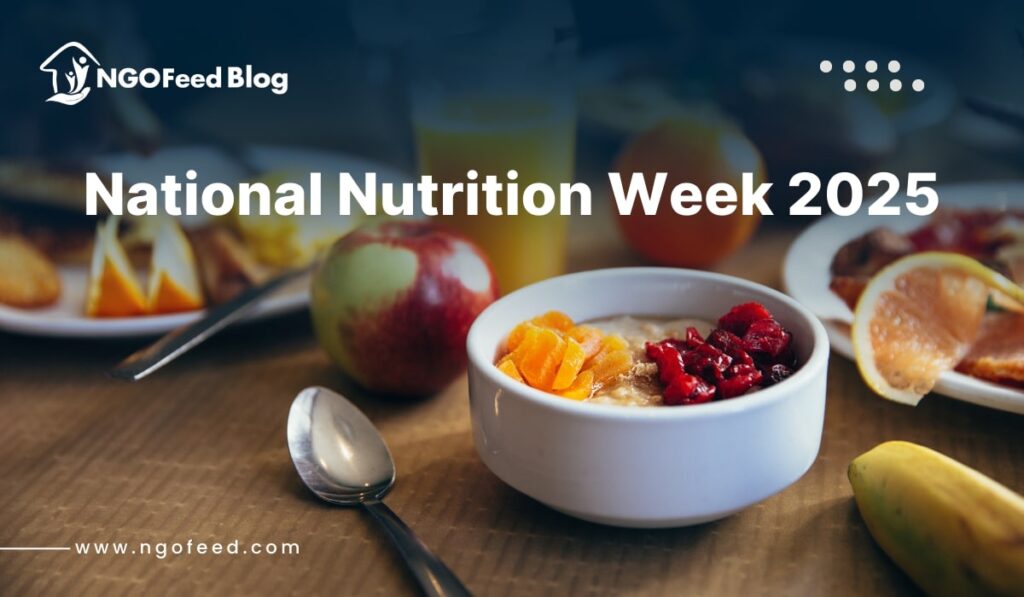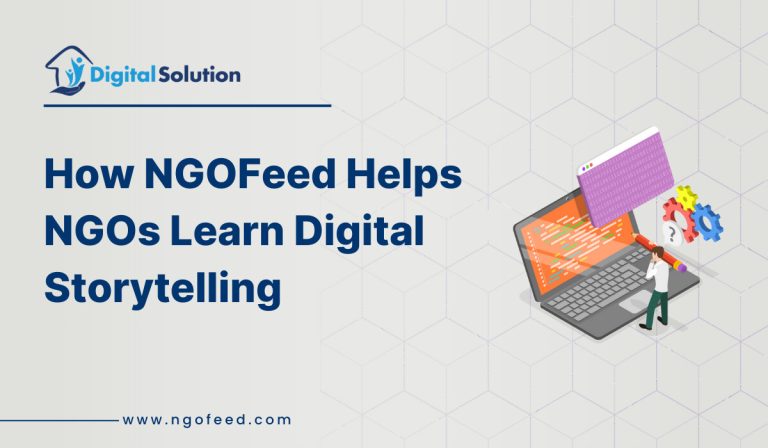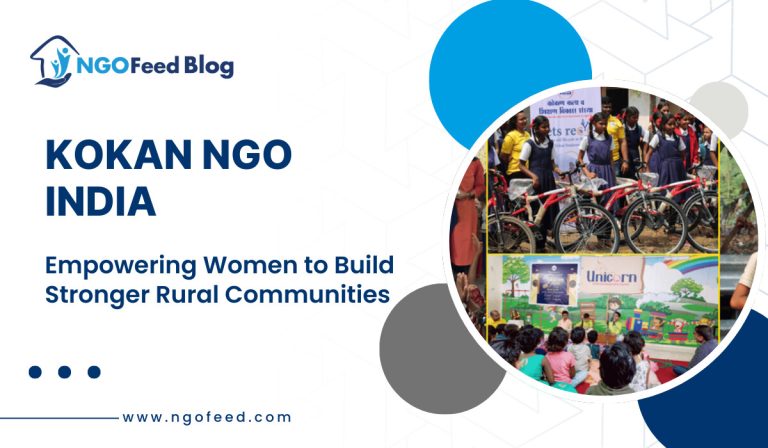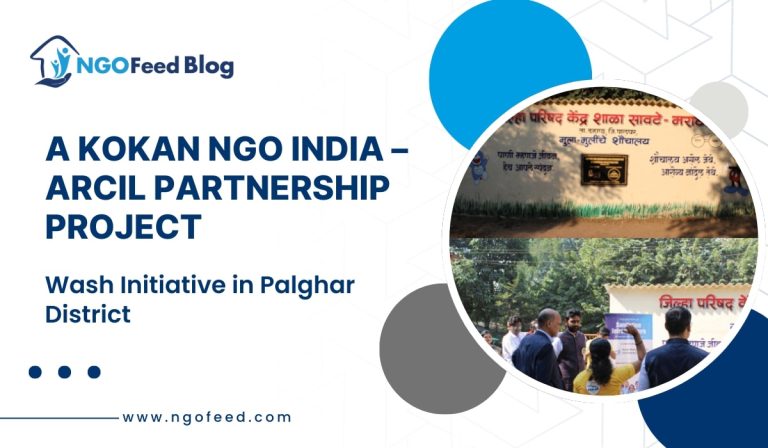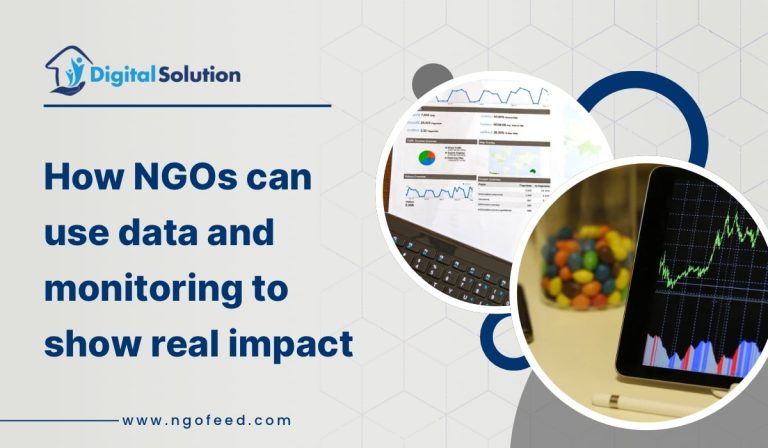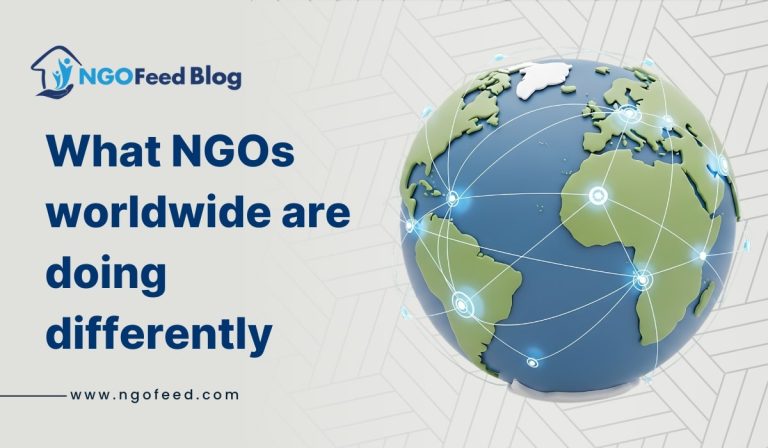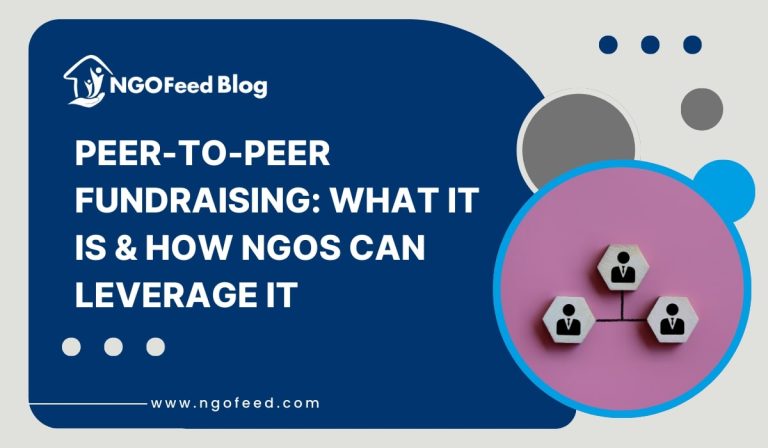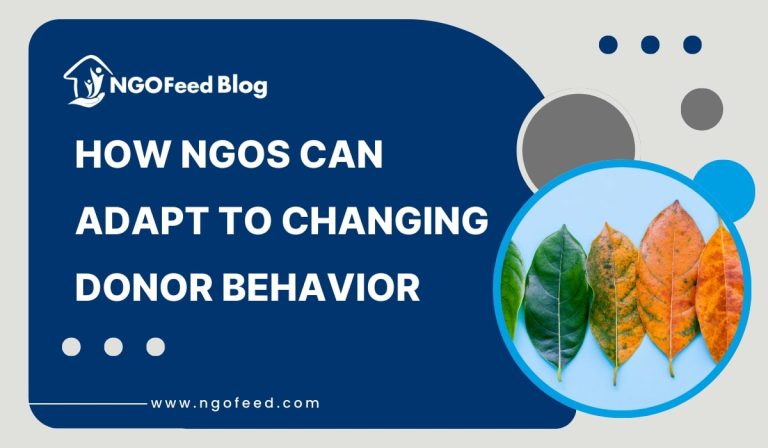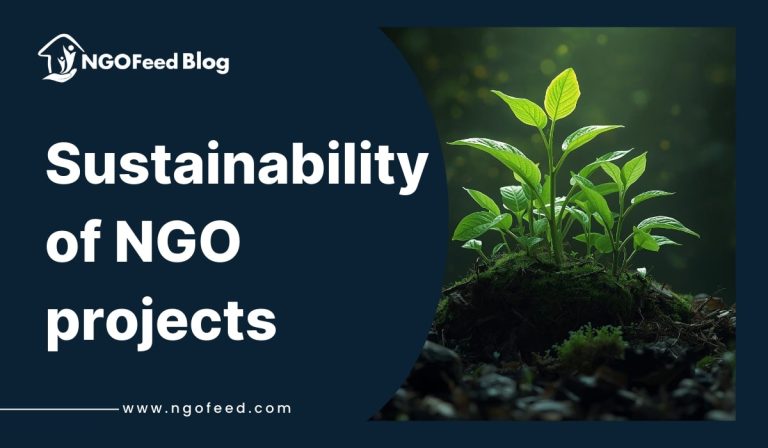National Nutrition Week: Though it is one of the most fundamental human needs, food is also one of the most effective instruments for social progress, health, and development. Nutrition determines how well societies flourish, how resilient communities are in the face of disease, and how children develop into useful adults. With its great population, culinary variety, and socio-economic difficulties, India understands the critical need of tackling nutrition at both the governmental and local levels.
From September 1 to 7 every year, India celebrates National Nutrition Week, a program by the Food and Nutrition Board (FNB) under the Ministry of Women and Child Development. This celebration is a call to action to combat malnutrition, promote balanced diets, and increase nutritional awareness all across the nation.
The theme for 2025, “Eat Right for a Better Life,” inspires every person to see food not only as nourishment but as the means of improving one’s life. basis of a happy, environmentally friendly, and satisfying life.
Table of Contents
Historical Development of National Nutrition Week
Early Issues (Pre-independence to the 1980s)
Pre-Independence India saw general hunger and famine, notably the Bengal Famine of 1943, which underlined how poverty, food scarcity, and inequality were connected to malnutrition.
India concentrated on food security following independence with projects such the Green Revolution of the 1960s meant to guarantee enough food production. Nutrient was, however, not given more importance than calories.
Start of National Nutrition Week 1982
The Food and Nutrition Board established National Nutrition Week as an annual event in 1982 to combat malnutrition via awareness initiatives.
Originally, it targeted mothers, children, and rural areas with knowledge about balanced diets, nursing, and affordable nutrient-rich foods.
Modern Phase (2000s onward)
Along with evolving disease patterns, nutrition initiatives grew beyond undernutrition to embrace obesity, lifestyle illnesses, micronutrient deficiencies, and sustainable eating practices.
Supported by digital technology and community involvement, the government introduced flagship programs like POSHAN Abhiyaan (2018) to lower stunting, anemia, and malnutrition.
National Nutrition Week 2025 theme: Eat right for a better life
This year’s theme comprises three mutually related aspects:
Health and longevity
- Concentrate on avoiding both overnutrition and innutrition.
- Support diets abundant in vitamins, minerals, protein, and dietary fiber.
Holistic Wellness
- Emphasizing food’s relationship with emotional health.
- Promoting conscious eating and stress-free food choices.
Equity and Sustainability
- Promoting ecologically friendly meals that help farmers and lower food waste.
- Encouragement of regional and seasonal foods for ecological equilibrium and affordability.
This fits the Eat Right India Movement of the FSSAI, which advocates for safe, nutritious, and sustainable food systems.
National Nutrition Week – Focus day by day for 2025
- Day 1: Food Groups and Balanced Diet (Sept 1)
- Day 2 (Sept 2): Minerals, Vitamins, and Immunity
- Day 3 (Sept 3): Avoiding Deficiency Diseases (Goitre, Rickets, Anaemia)
- Day 4 (Sept 4): Food Security and Cheap Nutrition
- Day 5 (Sept 5): Child and adolescent diet
- Day 6 (Sept 6): Nutrition of Nursing and Lactating Women
- Day 7 (Sept 7): NGO’s Role and Community Action
India’s Nutritional Environment
Achievements
- Mandatory enhancement of salt, edible oils, and rice.
- POSHAN Tracker: Computer-enabled system for tracking maternal and child nutrition.
- School-based programs lessened classroom hunger and raised attendance.
- Provides vulnerable families subsidized grains under the Public Distribution System (PDS).
Continuous Difficulties
- NFHS-5 (2019–21) finds 35.5% of youngsters under five are stunted.
- Anemia affects 67% of children and more than 57% of women (15–49 years).
- Unhealthy eating habits and increasing diabetes have resulted from fast urbanization, so helping to cause obesity and lifestyle diseases.
- Food injustice: Socio-economic and caste lines affect access to wholesome meals.
- Cultural Food Practices: Taboos on baby feeding or prenatal diets sometimes aggravate malnutrition.
National Nutrition Week – Best Practices and Case Studies
Middle-day meal plan of Tamil Nadu
- Originally developed in the 1960s by K. Kamaraj.
- Gave youngsters hot meals to combat hunger and increase registration.
Mission for Millet of Odisha
- Encourages climate-resilient plants such bajra and ragi.
- Supports small farmers and enhances nourishment.
Mission of Kudumbashree in Kerala
- Women-led groups cultivate food in kitchen gardens.
- Empowers women and improves nutritional security.
Decentralized PDS in Chhattisgarh
- Local purchasing of grains guarantees a more efficient supply chain.
International Comparisons
- Introduces nutritional courses in schools, Japan’s 2005 Law on Shokuiku (Food Education).
- March is National Nutrition Month in the United States; it promotes individualized nutritious diet.
- Brazil’s Community Kitchens serve the urban poor nutritious, reasonably priced meals.
Integrating nutrition with social justice, India’s Nutrition Week hopes to simultaneously alleviate hunger, malnutrition, and inequality.
Technological Role in Nutrition Awareness
- Real-time monitoring of maternal and child nutrition with the POSHAN Tracker App.
- Mobile health campaigns SMS diet reminders for expectant mothers.
- Social media: Recipe videos, Nutrition myths-busting campaigns.
- Training for Anganwadi employees on contemporary nutrition techniques using e-learning modules.
Educational Impact
- Curriculum Integration: Nutritional instruction in science and social studies.
- Projects on kitchen gardening, food pyramids, and meal planning: practical learning.
- Skill Building: Cooking courses and education regarding food label interpretation.
- Value Education: Addressing hunger and food sharing to instill empathy.
“You are what you eat, so eat something sweet—like fruits, not sugar.”
Adapted Proverb
Future Directions and Recommendations
- Nutrition literacy should be included in the national curriculum; hence, it must be strengthened.
- Extend fortified foods to tribal and rural regions: universal fortification.
- Encouraging conventional diets: restoring millets, pulses, and native greens.
- Making diets personal with AI-driven applications is one way to take advantage of technology.
- Public-Private Partnerships: Promote CSR-driven nutrition initiatives.
- Establish affordable, healthy food options in urban poverty.
Conclusion
National Nutrition Week 2025 is a movement for health, fairness, and sustainability, not just a symbolic campaign. India stresses the value of careful eating, balanced diets, and sustainable food systems under the topic “Eat Right for a Better Life.”
On one hand undernutrition and on the other obesity make up the double burden of nutrition we as a country are at a crucial crossroads. Education, awareness, and shared accountability hold the key. Working collectively—governments, NGOs, schools, and people—we can make certain that every person has a right to nutrition rather than a privilege.
Call To Action
- Individuals should pledge to adopt balanced diets and educate their families about healthy eating.
- Schools and colleges must integrate nutrition awareness into daily learning and activities.
- NGOs and community groups can amplify campaigns to reach marginalized populations.
- Policymakers and healthcare providers should strengthen nutrition programs and ensure access to affordable, wholesome food for all citizens.
Let us remember that a nourished nation is a progressive nation. National Nutrition Week 2025 is our opportunity to work together toward the vision of a “Suposhit Bharat” (Nourished India)—where every child, woman, and citizen has access to the nutrition they need to thrive.
Frequently Asked Questions (FAQs)
1. What is National Nutrition Week and when is it observed?
National Nutrition Week is celebrated every year from 1st to 7th September in India. It was initiated by the Ministry of Women and Child Development in 1982 to raise awareness about the importance of nutrition for health, well-being, and national development.
2. What is the theme of National Nutrition Week 2025?
The official theme for 2025 has not yet been announced. However, each year the theme focuses on promoting balanced diets, combating malnutrition, and encouraging healthy eating practices in line with the Poshan Abhiyaan (National Nutrition Mission).
3. Why is National Nutrition Week important?
It highlights the role of nutrition in preventing diseases, supporting child development, empowering women, and strengthening immunity. In India, where malnutrition and lifestyle diseases coexist, such awareness drives are crucial for promoting sustainable dietary habits.
4. Who organizes National Nutrition Week in India?
The Ministry of Women and Child Development, in collaboration with NITI Aayog, National Institute of Nutrition (ICMR-NIN), NGOs, schools, and healthcare institutions, organizes various programs and campaigns to spread awareness.
5. What are some key activities during National Nutrition Week?
Community health camps and nutrition counseling sessions
Awareness drives in schools and colleges
Demonstrations of healthy recipes using local ingredients
Distribution of educational material on balanced diets
Media campaigns on nutrition and wellness
Growth monitoring of children under POSHAN Maah initiatives

